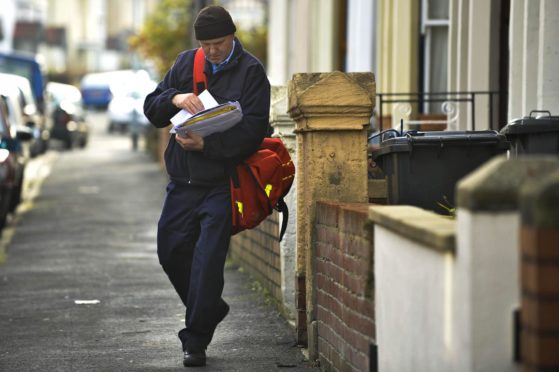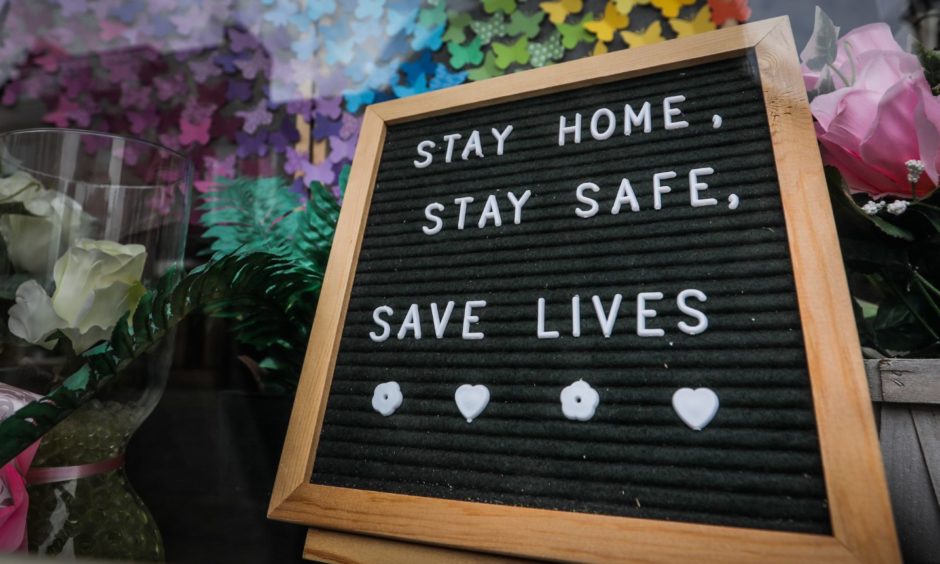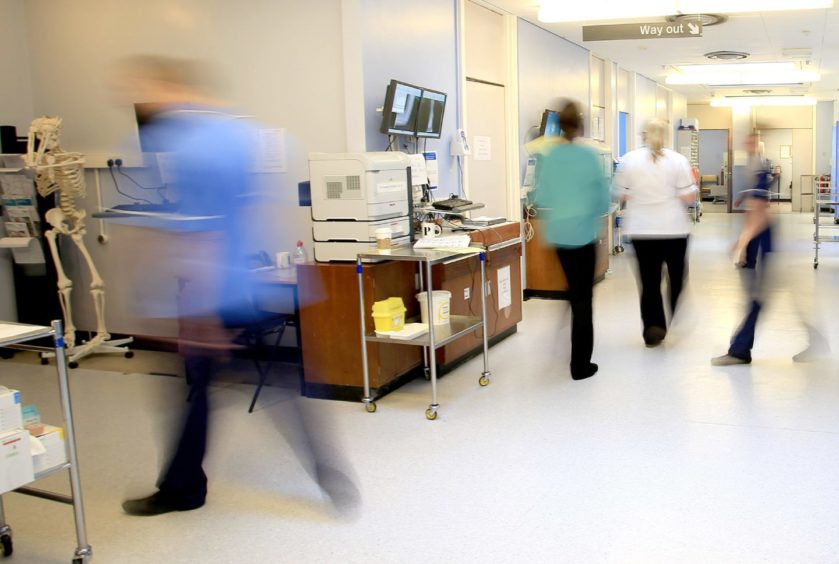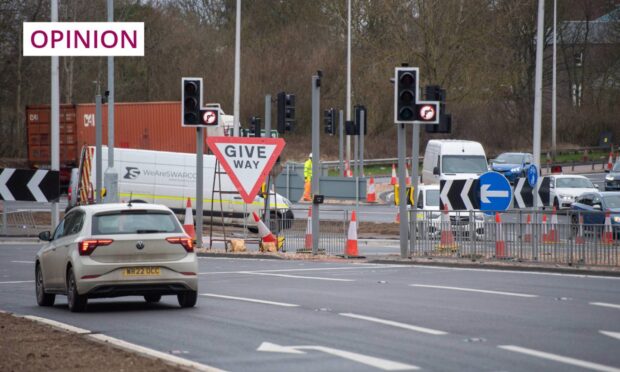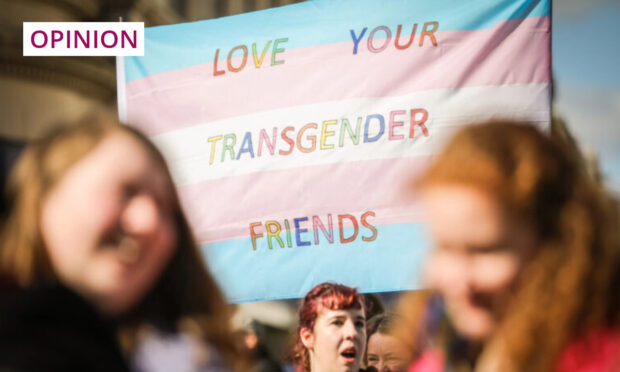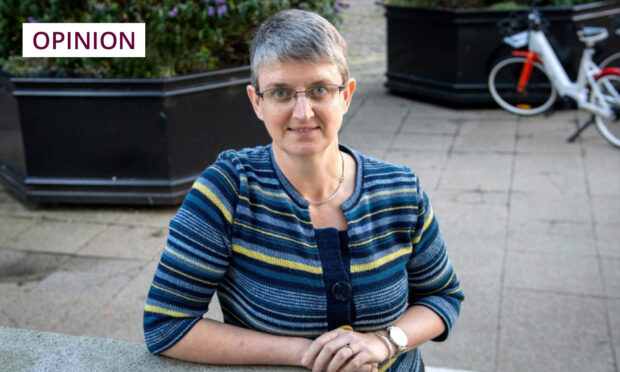I thought if adulthood had taught me anything it was that it’s not worth getting excited about the brown envelopes.
Endearments and invitations arrive handwritten in white. Or they used to before Whatsapp and Facebook rendered such keepsakes all but obsolete.
Cheques dance through the letter box with your name on the front and seldom out of the blue.
Those unsolicited brown jobs, addressed only to ‘the occupier’? Na chuck them on the recycling pile with the rest and I’ll maybe get round to opening them if the wifi goes down. Or there’s a power cut. Or all my books are stolen and I have literally nothing better to do with my time.
I must have had a moment of weakness this week though because I opened the one sent by the Scottish Government and NHS Scotland and now I wonder if sometimes they might contain the power to change lives.
Inside was a 12-page leaflet featuring a woman in a t shirt and Carol Decker curls and the message that the law on organ and tissue donation is changing.
From March 26, Scotland will switch to a system of “deemed authorisation”, an assumption that organs, such as kidneys, heart, lungs, liver and tendons, can be made available for transplant after death.
The law will not apply to children or adults who lack the capacity to decide and everyone will have the ability to opt out.
Loved ones will still be consulted, but people who feel strongly that they do want their organs to be used in this way are encouraged to register their desire, since this may make it easier for families after their death.
It’s been in the pipeline for a while but what with all the other life or death business of the last year, it might have slipped off your radar too.
So, it’s worth taking a moment to reflect on what a monumental shift this is.
There are around 500 people on the transplant waiting list in Scotland today. The number has fallen steadily following efforts to boost the transplant rate. Since 2008 the number of organ donors has doubled, from 54 to 109 in 2019/20, while the number of transplant operations has also risen, by 45%, from 211 to 307.
That still leaves a lot of people in the middle. Some will die there. Others will go on relying on medical regimes like dialysis, living lives so limited by illness the rest of us can’t begin to imagine how they exist.
This switch to an opt-out system holds out the hope of more organs becoming available – Wales, which introduced it in 2015, now has the highest consent rate in the UK – but it also gives us an opportunity to take this conversation out of hushed side rooms off hospital corridors and into everyday life.
I’ve carried a donor card since I was old enough to do so. For me, it was as much a rite of passage as the ones from Amnesty International and CND. The others are long lapsed and the donor register is digital these days but I still have a dog-eared card – pink now with the same curvy lettering – in my purse.
Plenty of people weren’t as insufferable as I was as a teenager. Some may be opposed to the notion altogether, but I bet there are lots more who just haven’t found the time in busy lives to tick the right boxes.
Maybe they’ll leave that leaflet in the recycling pile but maybe it will spark a discussion with their nearest and dearest that has never felt comfortable before – “Pass the potatoes and oh by the way I request that after my death A any part of my body be used for the treatment of others or B my kidneys, corneas, heart, lungs, liver and pancreas be used for transplantation”.
Because it’s not a subject most of us choose to dwell on and here, as in so many other aspects, I see what a privileged position my job has put me in.
Some stories you do not forget
I must have interviewed thousands of people over the last three and a half decades. Most of them have congealed into a glob of long-forgotten and half-remembered details at the back of my mind. But in 1992 I was working as a reporter for a weekly paper in West Lothian when we learned a local man – a postie and a church elder, not much older than I am now – had become the first person in Scotland to receive a heart transplant at the new unit in Glasgow.
I remember his name. I can still picture his face. I will never forget the sense of wabbit joy his family gave off, a mix of disbelief and relief that all the worries they would lose him might actually be behind them.
I’ve also spoken to families who have lost loved ones in accidents and given permission for their organs to be transplanted. Not one of them has ever expressed regret.
This is not the first time Scotland has taken bold steps in the realm of public health. Moves such as the smoking ban and alcohol minimum pricing have ushered in major changes in habits and corresponded with falls in consumption. Measures which critics branded unworkable are now being adopted elsewhere.
This one gives all of us the power to potentially change not just society but the life of another person.
What a wonderful gift to land at your feet.
